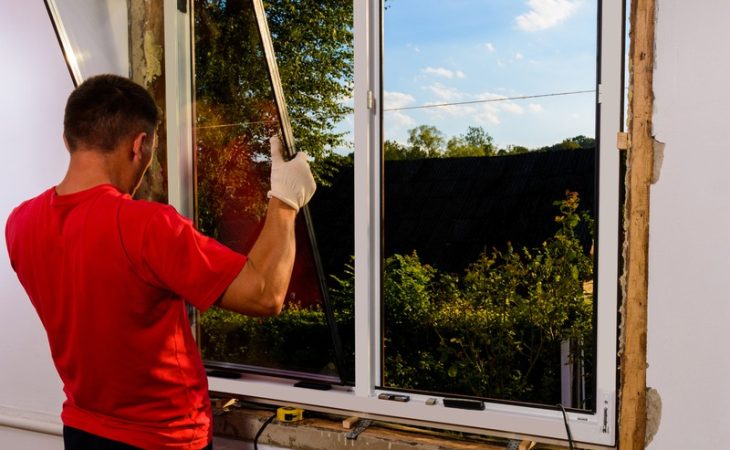Energy efficiency is a significant concern for homeowners looking to cut down on costs while ensuring comfort within their homes. Replacing or upgrading windows can contribute to reducing energy bills, but understanding which windows are most energy-efficient can be complicated. This article sheds light on the types of windows that optimize energy efficiency and offers practical insights to help make an informed decision for your home. Key factors such as window materials, glazing options, and installation considerations play a crucial role in achieving energy savings.
Top Windows for Energy Efficiency
When it comes to energy-efficient windows, several features come into play. Here are some choices recognized for their energy-saving properties:
-
Double- and Triple-Glazed Windows: Utilize two or three layers of glass with inert gas filling between the panes, decreasing heat exchange effectively.
-
Low-E (Low-Emissivity) Coated Glass: Reduces energy loss by reflecting infrared energy and maintaining consistent indoor temperatures.
-
Vinyl Frames: Provide good thermal resistance and are cost-effective compared to metal frames.
-
Wooden Frames: Naturally insulating, though they require maintenance to prevent weather-related damage.
-
Composite Frames: Made of a mixture of materials, offering durability and excellent insulation properties.
Factors Contributing to Window Energy Efficiency
The efficiency of windows depends on a combination of their design and materials. Double- and triple-glazed windows stand out because they contain multiple layers of glass with spaces filled with gases like argon, which act as barriers against heat loss and heat gain. In extreme climates, this can lead to significant savings over time by reducing reliance on heating and cooling systems. Low-E glass is also pivotal in energy-efficient windows, with its special coatings reflecting heat without blocking light, thus maintaining brightness within the home.
Windows with vinyl or composite frames are often preferred for their low thermal conductivity, which enhances their insulation capability. These frames help in minimizing heat transfer, which can drastically reduce the cost of energy. Wooden frames, while aesthetically pleasing and effective at insulation, need regular care to maintain their efficiency. The overall impact of these features results in windows that keep homes comfortable, all while saving on energy bills.
Selecting the Right Windows for Your Home
Choosing the right energy-efficient windows involves considering several aspects. Factors such as climate, home design, and budget all influence the decision. Double-glazed windows typically provide a good balance of insulation and affordability, making them suitable for most environments. In areas with harsher climates, triple-glazed windows may be necessary to achieve the desired energy efficiency. Evaluating these variables ensures homeowners can select windows that complement their needs while maximizing their energy savings.
Wooden frames can lend a classic charm while offering adequate insulation. Conversely, vinyl and composite frames are modern options that align well with contemporary design preferences and provide energy benefits. Investing in energy-efficient windows should be seen as a long-term decision that balances initial costs with future energy savings, ultimately leading to increased comfort within the home and a lower carbon footprint.
Benefits of Energy-Efficient Windows
-
Cost Savings: Significantly lower heating and cooling expenses by maintaining stable indoor temperatures.
-
Enhanced Comfort: Keeps living spaces more consistent in temperature, reducing reliance on HVAC systems.
-
Environmental Impact: Helps reduce carbon emissions, contributing to a more sustainable living space.
-
Noise Reduction: Offers better sound insulation, creating a quieter home environment.
-
Improved Property Value: Modern energy-efficient windows can increase a home’s market potential and appeal.
The advantages of energy-efficient windows extend beyond financial savings. By reducing the ecological impact of high energy consumption, such windows contribute to more sustainable living practices. Moreover, by offering improved insulation, these windows can minimize external noise, further enhancing indoor comfort. The potential for increasing a property’s market value is another benefit, making energy-efficient windows a worthwhile investment for homeowners seeking to improve their home environment.
Importance of Professional Installation
For optimal performance and to ensure windows are properly fitted, considering professional installation services is vital. Experts in Salt Lake City window installation can assess the needs of a specific home and recommend the best solutions. Their expertise ensures that windows are not only installed correctly but also that they perform as efficiently as possible against the elements.
Professional installation goes hand in hand with selecting high-performance window materials, as even the most efficient windows won’t provide the desired results if not properly installed. Ensuring airtight seals and correct alignment is critical to maintaining their energy efficiency over time. Engaging skilled professionals offers peace of mind that the investment in energy-efficient windows will yield maximum benefits.
Maintenance and Long-Term Care for Energy-Efficient Windows
Regular maintenance ensures that energy-efficient windows remain effective in the long term. Cleaning the glass helps maintain low-E coatings while inspecting and replacing weatherstripping guards against air leaks. Paying attention to frames, especially when dealing with wood, helps in preserving their insulative qualities. Proper care can prolong the lifespan of energy-efficient windows, ensuring they remain a valuable part of a homeowner’s energy-saving strategy.
When planning a window upgrade or maintenance, it is beneficial to work with a reputable window and door company. They provide insights into the latest window technologies and ensure that any new installations or repairs are carried out with precision. This approach helps homeowners maintain the energy efficiency and integrity of their windows over time.
Investment and Cost Considerations
While the initial cost of energy-efficient windows can appear high, they often lead to substantial savings in energy bills over time. Comparing the cost of various window types and evaluating potential energy savings can help homeowners make informed decisions. Double-glazed windows offer a cost-effective option for many climates, whereas triple-glazed windows might be necessary in colder regions to offer superior energy retention.
Look for opportunities through local energy programs, offering rebates or discounts for installing energy-efficient windows. Engaging with professionals such as those from a Utah window replacement company can help homeowners find windows that fit both their efficiency needs and budget constraints. Considering these factors enables homeowners to make an investment that balances costs today with substantial savings tomorrow.
Closing Remarks
Efficient windows are a significant step towards reducing household energy consumption and costs. By selecting windows with enhanced features like double or triple glazing, low-E coatings, and suitable frame materials, homeowners can create a more comfortable and eco-friendly living environment. Utilizing professional services for installation and taking advantage of local energy programs further enhance these benefits. When balanced with proper maintenance, energy-efficient windows represent a lasting investment that pays off in comfort, savings, and sustainability for many years.








